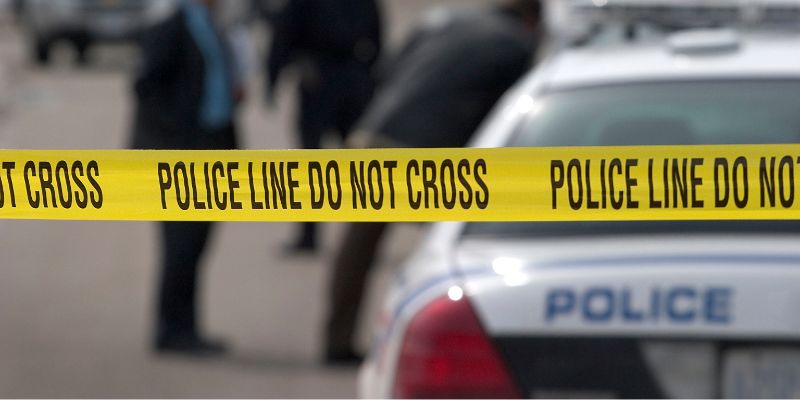|
|
Last Modified on Sep 12, 2023
Many people conflate the terms “homicide,” “murder,” and “manslaughter,” and it is vital to understand the differences in what these terms define. The term “homicide” is a broad legal term that applies to any killing of another person, and “murder” and “manslaughter” refer to different forms of homicide.
If you are charged with any type of homicide, it is crucial to know what to expect as your case unfolds and the value of having experienced defense representation on your side. These offenses carry some of the harshest sentences under the Georgia Criminal Code, and an Atlanta, GA, murder defense lawyer will be an invaluable asset in your case.

Defining Murder Versus Manslaughter in Atlanta
The main factor that will come into play in determining whether a homicide offense counts as manslaughter or murder is premeditation or planning the act. When an individual has taken steps to commit a lethal act of harm, this is murder and carries some of the harshest possible penalties under the state Criminal Code.
To secure a conviction for murder in Atlanta, a prosecutor must present evidence and testimony that shows the defendant intended to cause the death. This means the defendant knew their actions were likely to result in death or severe bodily injury to the victim and took clear steps to complete the act. For example, lying in wait for the victim before fatally attacking them or using a firearm shows clear signs of intent to cause death or great bodily injury.
A prosecutor is more likely to seek a manslaughter conviction when a defendant acted without any premeditation but knowingly engaged in an action likely to result in death or great bodily harm. Manslaughter is typically called a crime of passion because it occurs in the heat of the moment without any planning or premeditation. Involuntary manslaughter occurs when a defendant unintentionally causes the death of another person through a negligent act.
Penalties for Homicide
It is very likely for a defendant charged with any form of homicide to face a felony conviction, and the penalties for conviction could include heavy fines, incarceration in state prison, and restitution to the family of the victim. When an individual is convicted of involuntary manslaughter, they may face a misdemeanor charge under certain conditions, but this can still lead to months or even years in county jail, along with additional penalties.
Beyond the penalties assigned by the criminal court judge, the defendant found guilty of murder or manslaughter is also likely to face a civil claim from the family of the victim. They may pursue a wrongful death claim, and the standard of proof is less demanding in a civil case than it is in a criminal case. This means that if a defendant has been found guilty in criminal court, they are more than likely to be found liable for damages in a civil wrongful death claim.
An experienced murder defense attorney is an invaluable resource for anyone charged with any type of homicide offense. It’s possible to avoid conviction if the defense attorney can prove that their client did not commit the offense or that the situation does not meet the definition of the charges brought by the prosecution. It is also possible for a defense attorney to help their client secure a lighter sentence and/or reduced charges through plea bargaining.
FAQs About Differences in Homicide, Murder, & Manslaughter in Georgia
What Is the Difference Between Murder and Manslaughter?
Both murder and manslaughter are homicide offenses that refer to the killing of another person, and the main differentiating factor between the two is premeditation. When an individual plans to kill another person and then follows through with their plan, this is murder. If an individual kills another person through a split-second decision or sudden act of passion, this is likely to qualify as voluntary manslaughter.
What Is the Difference Between Voluntary and Involuntary Manslaughter?
Voluntary manslaughter occurs when an individual knowingly causes the death of another person through an act that they knew was likely to result in death or great bodily injury. Involuntary manslaughter occurs when an individual causes the death of another person through an unintentional act or an act of negligence, such as distracted driving.
Is Homicide a Misdemeanor or Felony?
Almost all homicide offenses are prosecuted as felonies, with the exception of involuntary manslaughter, which may be prosecuted as a misdemeanor. Penalties for any homicide conviction can be severe, but murder charges carry the harshest penalties, including incarceration in state prison for many years, heavy fines, and restitution to the victim’s family.
What Is the Most Viable Defense to a Homicide Charge?
If an individual is accused of any form of murder or manslaughter, the most viable defenses available to them include mistaken identity or proving that they acted in self-defense. To secure a conviction for murder or manslaughter, the prosecution must meet the burden of proving the defendant is guilty beyond a reasonable doubt, and the defense attorney can help their client formulate an effective defense to prevent the prosecution from accomplishing this.
What Will It Cost to Hire Defense Counsel for a Homicide Case?
The majority of private criminal defense attorneys bill their clients hourly and track the time spent working on cases in 10- or 15-minute increments. The attorney’s hourly rate typically depends on their overall experience level and the complexity of the case, and many defense attorneys charge hundreds of dollars per hour. The total cost of your defense representation will add up quickly the more time the attorney must spend working on your case.
Contact The Law Office of Lawrence J. Zimmerman
The team at The Law Office of Lawrence J. Zimmerman has years of professional experience handling a wide range of homicide cases, including all types of murder and manslaughter. These are some of the most serious criminal charges anyone can face, and if you find yourself in this situation, it is vital that you contact a defense attorney you can trust as soon as possible.




